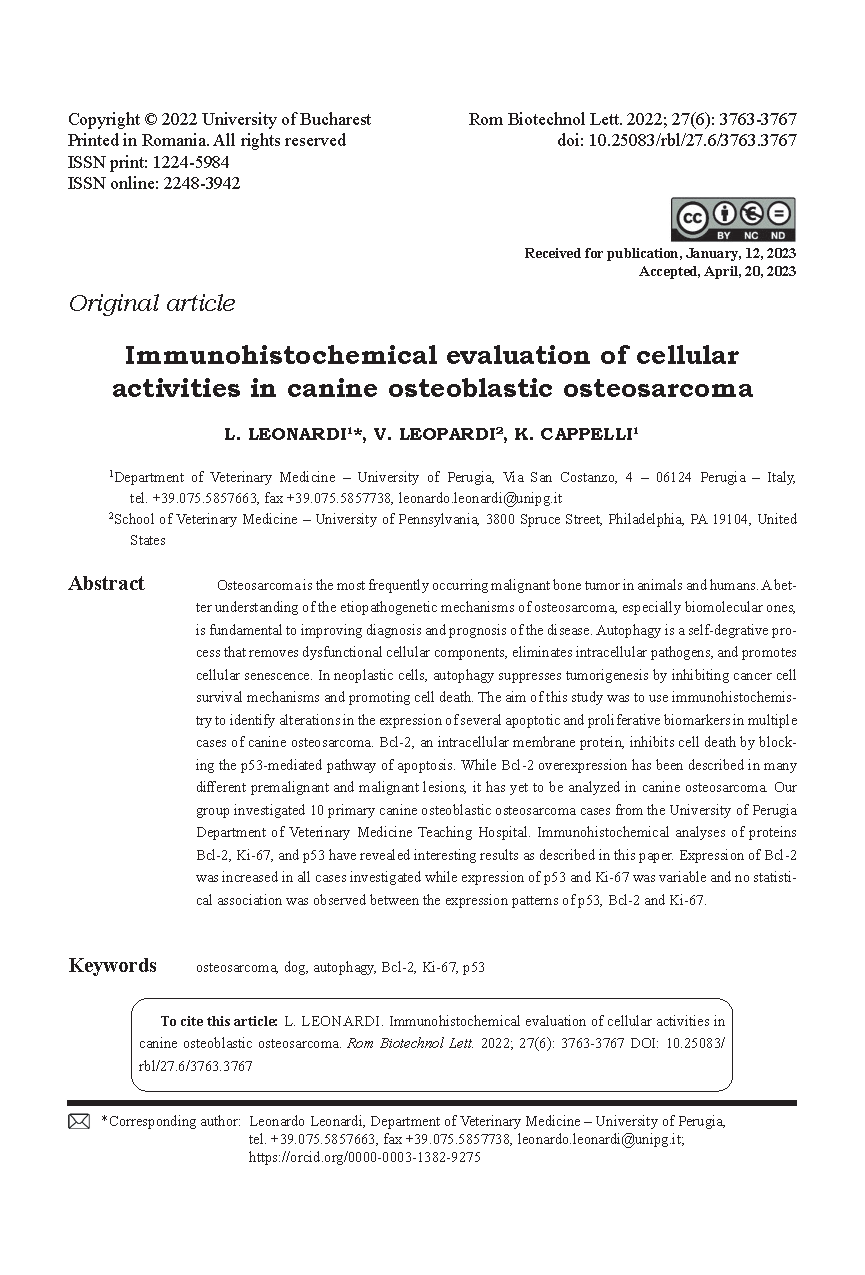Immunohistochemical evaluation of cellular activities in canine osteoblastic osteosarcoma
DOI:
https://doi.org/10.25083/rbl/27.6/3763.3767Keywords:
osteosarcoma, dog, autophagy, Bcl-2, Ki-67, p53Abstract
Osteosarcoma is the most frequently occurring malignant bone tumor in animals and humans. A better understanding of the etiopathogenetic mechanisms of osteosarcoma, especially biomolecular ones, is fundamental to improving diagnosis and prognosis of the disease. Autophagy is a self-degrative process that removes dysfunctional cellular components, eliminates intracellular pathogens, and promotes cellular senescence. In neoplastic cells, autophagy suppresses tumorigenesis by inhibiting cancer cell survival mechanisms and promoting cell death. The aim of this study was to use immunohistochemistry to identify alterations in the expression of several apoptotic and proliferative biomarkers in multiple cases of canine osteosarcoma. Bcl-2, an intracellular membrane protein, inhibits cell death by blocking the p53-mediated pathway of apoptosis. While Bcl-2 overexpression has been described in many different premalignant lesions, it has yet to be analyzed in canince osteosarcoma. Our group investigated 10 primary canine osteoblastic osteosarcoma cases from the University of Perugia Department of Veterinary Medicine Teaching Hospital. Immunohistochemical analyses of proteins Bcl-2, Ki-67, and p53 have revealed interesting results as described in this paper. Expression of Bcl-2 was increased in all cases investigated while expression of p53 and Ki-67 was variable and no statistical association was observed between the expression patterns of p53, Bcl-2 and Ki-67.





